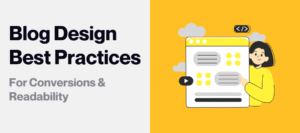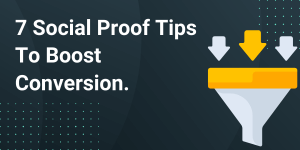Welcome to the second part of the content marketing series. It’s about Content planning for your marketing framework.
If you haven’t completed the first part of this series then I would highly recommend you to have a look.
Because I am going to take lots of references from the storytelling in business to help you better understand.
One fundamental of storytelling is to start with WHY.
Why are you doing?
Why does a buyer should listen to you?
By considering this aspect, let’s start the “part 2 of the content marketing series”.
Why content planning is even required for your marketing framework?
Before you understand why content planning is essential, let’s first understand what will happen if you have never prepared a content plan.
I am assuming you as an excellent content marketer. Since you don’t have a well-planned content strategy, you’re just focusing on creating content.
Even someone consumes your content and find it a very helpful one, will they be able to buy from you or your service?
Good content is good only when it brings you the result. But if you don’t have a content framework, how will you be able to turn your customers from the awareness stage to the decision stage?
Your content is maybe helpful for the buyers who are in the awareness stage.
But do you have any content plan that will convert that buyer from awareness to decision stage?
No.
Not having a content plan will hang your reader in the middle with no clue what to do next.
One second there is still something that you’ll be missed on if you don’t have a content planning framework.
How will you measure the success of each content?
How will you compare your current results with the previous result?
It will make your job much difficult.
Yes, content marketing without a content plan is a waste.
If you don’t have yet, start now.
This brings me to the next point.
How will you start planning your content?
Let’s divide the process into a few steps so that you can start planning from now.
I would recommend you to bring a pen and a piece of paper because if you don’t start with me you’ll surely procrastinate later.
Step 1: Set a goal first

Setting a goal is for a long term success. It will help you to measure your content campaign and shape your strategy as well.
Are you selling a product? Or service?
Your goal could be anything like
- Increasing the conversion rate by 30% within 3 months.
- I want to grow the numbers of clients by 3 times, in 2 months
- I need at least 200 leads for my new business within 3 months
Now you must remember that your chosen goal is aligning with the SMART Goals.
Your goal must be
- Specific (what do you want to achieve actually? Is it leads, customers, or any other thing)
- Measurable (you must be able to measure the effectiveness of your each content campaign)
- Achievable (consider your resources, current state, etc before setting a goal)
- Relevant (you’re creating content for brand awareness but setting a goal to increase your sale. Irrelevant idea)
- Time-based (Make sure to add a timeline before which you will try to accomplish this)

Step 2: Deep dive into your buyer’s persona

In the case of content planning, you need to focus on creating content for each buyer’s stage. This includes
- Awareness stage
- Consideration stage
- Decision stage
If you already defined your goal for the content marketing campaign then, you need to move to the second part, that the demand.
In this section, we’ll learn about how to identify what your buyers actually want or what are the problems your buyers are facing.
Let’s start with understand the demand.
Let’s say your business help people to make money with content marketing. And you are planning to sell your online courses on content marketing.
So in this case, your buyers are those who want to build a career in the online industry. Likewise, they are ready to learn content marketing and how to make money with it.
What you need to do is to create a content plan for all of the buyer’s stages, such as awareness, consideration, and decision stage.
Because some of your audience might be aware of the opportunities in the content marketing industry.
These people belong to the awareness stage, where you need to create awareness about your solution.
In this case, you might offer a free guide on content marketing which will help your buyers to understand what actually it is and the scope as well.
But how will you understand what are the problems they are actually facing?

This could be done by using various online tools.
First, you can use answerthepublic.com, from where you will get clear on the questions.
Just type your topic, and you will see lots of questions that your audience is actually searching on the web.
Here is an example of how it looks:
Research about the buyer persona plays a big part in content planning.
You can even download all of these questions in CSV format. I would prefer to categorize each of these questions for each of the buyer’s stage.
Let me give you an example of you must categorize each question:
| Awareness stage | Consideration stage | Decision stage |
| What is content marketing? | How to learn content marketing? | Best courses on content marketing |
| How to make money from content marketing? | Courses on content marketing | Best institutes for learning content marketing |
| Advantages of content marketing | How to start a content marketing agency? | Price of courses |
From the above table, you can clearly see the intent of each question.
This way you will get a good idea on what are the topics or what kind of questions to cover in the content plan.
The next thing you need to do is joining the online communities.
Spending time where your possible buyers are spending their time, is actually necessary. You need to ask questions regarding your topic and observe the response.
You need to identify a few of the things from here:
- Can I see a common problem that most of the people are facing regarding the topic?
- Are there any drawbacks of options available right now in the market?
- Which format is more preferred by the audience? Video, text, or podcast.
This type of questioning season will help you to determine what types of content might work to attract leads, what is the current problem that you can solve, etc.
Till now you’ve identified your goal and understood the possible content ideas.
Now, let’s move forward to make a content framework.
Step 3: The content framework

A framework is required to make your content organized at any level of the content. If any changes are needed in between the timeline, then you’ll be able to align with the changes effectively.
I will attach the link to a content framework template offered by the HubSpot Academy content marketing course.
Download the free HubSpot Academy content framework template.
Your job will be to make a content plan for at least 3 months and to make a list of content that you going to create.
You can create content by yourself or you can hire a freelance writer to make your content. But the thing is you need to make sure everything is maintained as per the timeline.
Long term content creation might take some time to complete but it will make your content plan much organized.
Even you’ll have a proper template and you’re also focusing on content for each of the buyer’s stages.
In the later part of this series, you’ll learn more about how to track the performance of all of these content.
Conclusion

In this module, you’ve learned some amazing tips related to content planning.
Let’s recap all of those
Set a SMART goal
Identify buyer persona(Use answerthepublic.com, join online communities such as Reddit, Quora, etc)
Set a timeline
Organize your content with the help fo content framework.
I hope you’ve enjoyed this module. I am just curious to know what are the things you are going to implement from now.
Also, never forget to stay tuned with Iamrafiqul.com, as I will publish the remaining part of the content marketing series soon.
Read More, Learn More…
- 10 Free Content Marketing Tools (Tested)
- Blog UX Design Checklist
- 7 Must-Have AI Content Marketing Tools [2025]
- 7 social proof tips to skyrocket your landing page conversion
- I have started Accrue SERP- an SEO company

Sk Rafiqul Islam is a content marketing practitioner with 3+ years of practical experience. He spends most of his time helping businesses to build a loyal audience with content marketing. He is also running a tech career blog called 10Pie and content marketing VIP, a bi-weekly marketing newsletter. In his free time, he loves reading books and playing football.




Pingback: 5 Best Ways to discover the right content format for your business » I am Rafiqul